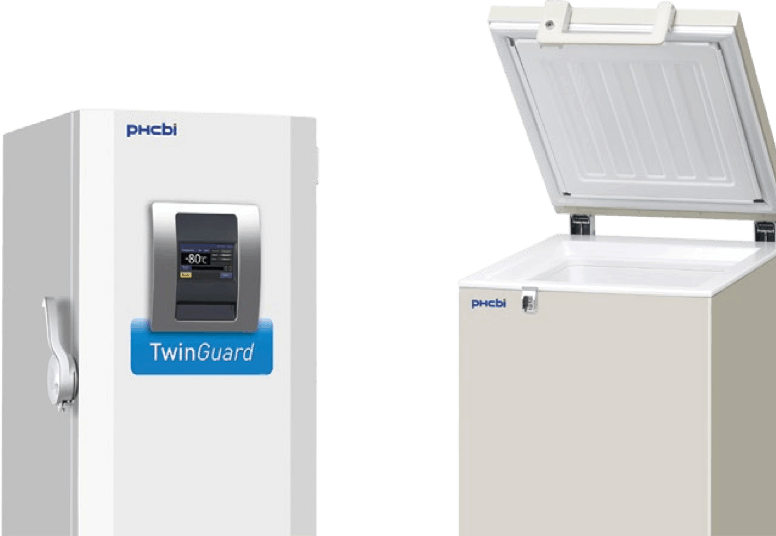
Cryogenic Liquid Nitrogen Freezers
Cryogenic storage systems provide a reliable cryopreservation solution to store clinical or research samples at -150°C or colder. These systems include liquid nitrogen autofill freezers, manual fill dewars and cryoshippers (also known as vapor shippers).
We offer autofill liquid nitrogen freezers for applications requiring storage between -135°C and -196°C in either liquid or vapor phase. Microprocessor controls automatically monitor and adjust the liquid levels, providing a secure and reliable long-term storage solution. Stainless steel inventory systems are available for both vial and blood bag storage. Custom systems can be designed for unique applications.
Our CryoMizerTM manual fill dewars combine the ease of sample storage in boxes with the advantage of low liquid nitrogen consumption. The unit allows for storing samples in a liquid or vapor phase.
If you’re in the market for an alternative to liquid nitrogen cryogenic storage freezers, the PHCbi Cryogenic Series -150°C is a great option. This ultra-low temperature mechanical freezer is ideal for cryogenic and long-term storage in laboratories and provides an economical alternative to liquid nitrogen storage.
Common applications for cryogenic storage include the storage and transport of the following: Blood, cord blood, stem cells, DNA, RNA, and other biomedical samples.
-
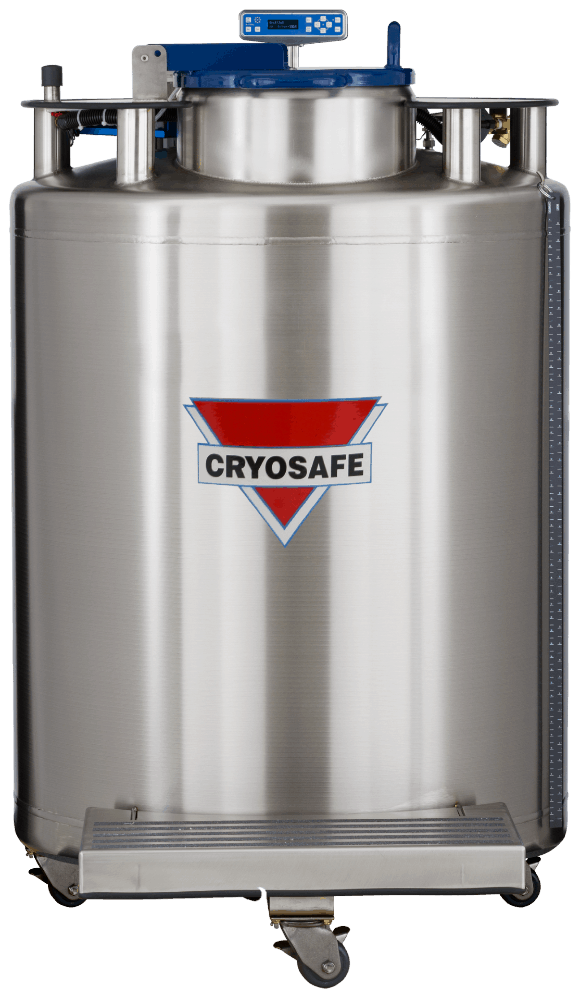 Auto-Fill Liquid Nitrogen FreezersAuto-fill liquid nitrogen freezers for applications requiring storage between -135°C to -196°C in either liquid …View Products
Auto-Fill Liquid Nitrogen FreezersAuto-fill liquid nitrogen freezers for applications requiring storage between -135°C to -196°C in either liquid …View Products -
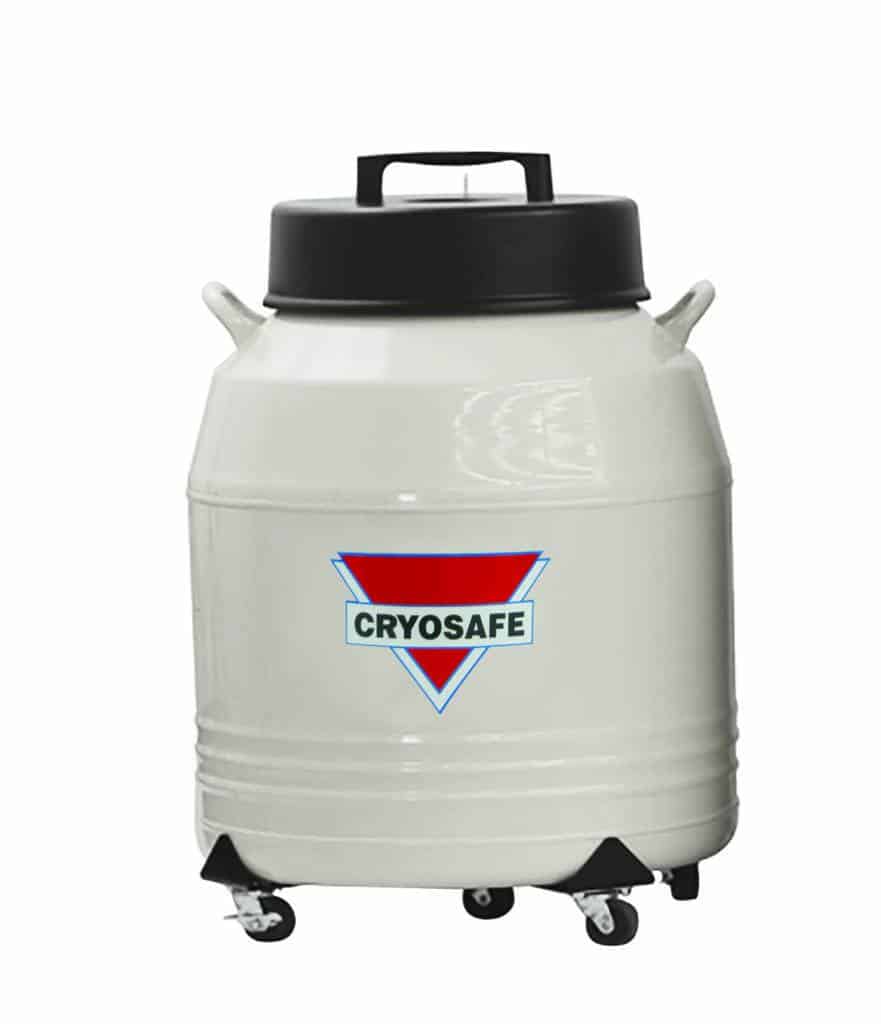 CryoMizer™ Manual Fill DewarsThe CryoMizer liquid nitrogen dewar combines the comfort of sample storage in boxes with the advantage of low liquid nit …View Products
CryoMizer™ Manual Fill DewarsThe CryoMizer liquid nitrogen dewar combines the comfort of sample storage in boxes with the advantage of low liquid nit …View Products -
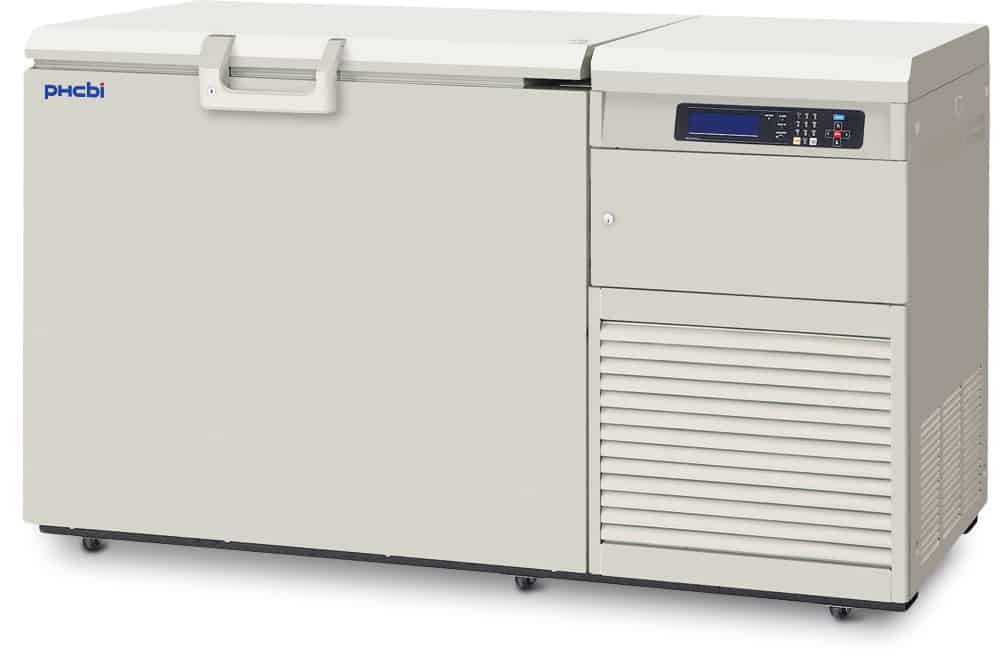 Mechanical -150°C Cryogenic FreezerThe PHCbi Cryogenic Series -150°C ultra-low temperature mechanical freezer is ideally suited for cryogenic and long-ter …View Products
Mechanical -150°C Cryogenic FreezerThe PHCbi Cryogenic Series -150°C ultra-low temperature mechanical freezer is ideally suited for cryogenic and long-ter …View Products -
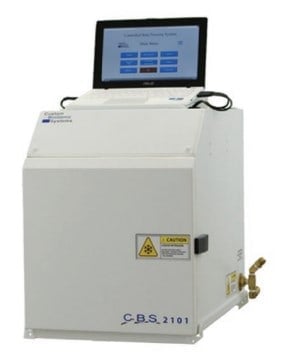 Control Rate FreezersWhether it’s a few samples or thousands, we have a cryogenic controlled rate freezer that will accommodate your unique …View Products
Control Rate FreezersWhether it’s a few samples or thousands, we have a cryogenic controlled rate freezer that will accommodate your unique …View Products
Cryogenic Liquid Nitrogen Freezer Considerations
- Autofill vs. manual: It comes to customer preference. Some people like the fact that LN2 is simple to use and very reliable. Also, if there’s a problem, the repairs aren’t as expensive. For smaller amounts of samples, many people opt for a manual fill. For larger quantities, it is more convenient to use an auto fill LN2 freezer.
- Temperature: Autofill liquid nitrogen freezers are designed for applications requiring storage between -135°C and -196°C in either liquid or vapor phase.
- Total vial capacity: Depending on the model, our manual fill units will hold anywhere from 875 to 7,000 vials; our autofill units will hold anywhere from 7,000 to 94,500 vials.
- Total liquid nitrogen capacity: Autofill units have a capacity of 165 to 300 liters; manual fill units have a capacity of 47 to 175 liters.
- Cost of cryogenic storage: If you’re looking for an economical alternative, consider the PHC -150°C cryogenic freezer. This mechanical, compressor-based freezer saves you the cost of purchasing liquid nitrogen. This unit, which holds a maximum of 15,000 vials, has a temperature control range of -125°C to -150°C and provides insulation for temperature uniformity for long-term storage. This unit also maximizes storage space with a minimal footprint of 8.2 cubic feet. The typical autofill freezer uses liquid nitrogen as a refrigerant, which means it does not have a compressor to make the samples cold. It’s important to note that each freezer will go though one 160-liter supply tank in a week to 10 days. The cost of this tank is around $100 to $150. This means if you are an autofill user, you will have to buy 3-4 tanks per month, which equates to around $7,000 a year in liquid nitrogen. If you use the PHC -150°C freezer, you do not need to buy the liquid nitrogen because it has compressors to hold temperature of -150 °C. There are a few downsides to a mechanical compressor. It is expensive to repair, and if the unit does fail, it will warm up quickly. That means you need to have a contingency plan in place for your samples.PHC does have an LN2 back-up option, which means you would have a supply tank connected to the freezer. This back-up will allow your samples to stay at critical cryogenic temperatures during a mechanical or power failure. The problem, however, is the LN2 will evaporate at room temperature, meaning it will be completely gone in about 30 days. This means that even if you do not use the supply tank, you still have to replenish the tank.
- Warranty: All autofill and manual fill models come equipped with a three-year warranty on parts and labor and a five-year warranty on the vacuum.
- Additional specifications: Depending on the model, our units also feature event and alarm logging, battery backup, enhanced level accuracy with direct read sensors, stainless steel storage racks, a hinged lid, protective boot and lid lock provisions for safety.
